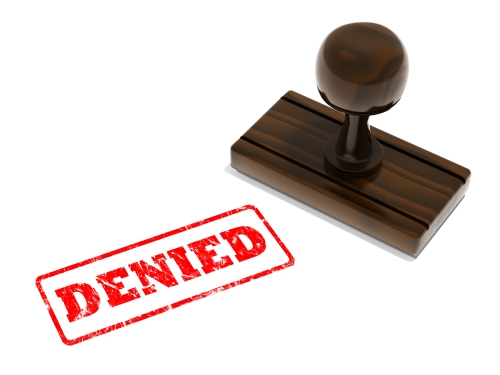 The U.S. Court of Appeals for the Federal Circuit (CAFC) today denied VoIP-Pal.com, Inc.’s petition for a writ of mandamus asking it to direct a California district court to vacate its decision in favor of Twitter, Inc.
The U.S. Court of Appeals for the Federal Circuit (CAFC) today denied VoIP-Pal.com, Inc.’s petition for a writ of mandamus asking it to direct a California district court to vacate its decision in favor of Twitter, Inc.
The U.S. District Court for the Northern District of California issued an order on November 2, 2021, refusing to grant VoIP-Pal’s motion to dismiss Twitter’s request for a declaratory judgment that its products do not infringe VoIP-Pal’s U.S. Patent No. 9,935,872. VoIP-Pal’s patents relate generally to a system for routing communications over Internet Protocol networks, and the company has been engaged in litigation with Twitter, Apple, Amazon and others for several years now.
In the present case, Twitter filed suit in the Northern District of California in April 2021 seeking declaratory judgment that its products do not infringe the ‘872 patent. VoIP-Pal moved to dismiss, arguing that the district court lacked jurisdiction, since there was no “immediate, actual controversy between the parties” yet. The district court denied the motion in November 2021, explaining that “VoIP-Pal had engaged in affirmative acts that indicated an intention to enforce the ’872 patent against Twitter.” In a prior suit involving U.S. Patent 10,218,606, VoIP-Pal had ultimately offered Twitter a covenant not to sue on the ‘606 patent but had declined to extend it to the ‘872 patent. In the instant suit, VoIP-Pal subsequently filed a second motion to dismiss with the addition of a covenant not to sue for infringement of the ‘872 patent, which was conditioned on the grant of the motion to dismiss. That hearing in the district court is scheduled for March 24, 2022; however, VoIP-Pal filed the petition for writ of mandamus in January 2022, seeking “to dismiss the underlying action before the district court determines whether the covenant not to sue is sufficient to divest itself of jurisdiction.”
Today’s CAFC order said that VoIP-Pal has not met the strict standard for granting mandamus, and that the district court’s observation that “a history of litigation involving related patents against the same products can play a significant role in establishing declaratory judgment jurisdiction” was correct. In addition to its reasonable determination that VoIP-Pal’s prior infringement suit against Twitter on the ‘606 patent strongly supported an “active controversy” on the ‘872 patent, the district court also noted that VoIP-Pal had issued a press release following the CAFC’s Rule 36 affirmance of the district court’s ruling that certain claims of U.S. Patent No. 8,542,815 were invalid as patent ineligible. That release declared the company was “undeterred in [its] fight to assert [its] intellectual property rights” and “remain[ed] firm in [its] resolve to achieve monetization for [its] shareholders.” It also announced four additional patent infringement suits against Facebook, Google, Amazon and Apple.
Coupled with the company’s aggressive enforcement of its patents against other telecommunications and internet companies, and its initial decision not to grant a covenant not to sue on the ’872 patent, the CAFC said VoIP-Pal had not “shown a clear right to dismissal of the action for lack of a case or controversy.” Furthermore, it had not shown that the mandamus petition was its sole option for obtaining dismissal of Twitter’s action, since the district court hearing is scheduled to take place soon. The court dismissed VoIP-Pal’s argument that “it should not have to provide a covenant not to sue in order to secure dismissal of the action,” explaining that is a problem “of VoIP-Pal’s own making,” since “VoIP-Pal is the one that decided to offer the covenant rather than wait to challenge the ruling on direct appeal following final judgment.”
VoIP-Pal has contended that its various cases underscore the way in which smaller innovator companies are being abused by Big-Tech, Silicon Valley giants via the judicial system, and particularly with respect to patent eligibility arguments. In an op-ed for IPWatchdog, VoIP-Pal CEO Emil Malak explained:
After spending millions of dollars in R&D, Voip-Pal created and patented a working IP-based telecommunications system with supernodes on multiple continents. After asserting our patents against Apple, Amazon, AT&T, Verizon and Twitter, we faced 12 inter partes review (IPR) challenges to our patents by two defendants (Apple and AT&T) and a third party, Unified Patents, acting on behalf of Silicon Valley companies. We successfully defeated all 12 IPRs—only to have our patents knocked down by two Alice Section 101 motions to dismiss, brought before a district court, which deemed Voip-Pal’s patented technologies to be an ineligible “abstract idea”, prior to claim construction and prior to our presenting expert evidence to the court.
Image Source: Deposit Photos
Author: Rangizzz
Image ID: 4540592

![[IPWatchdog Logo]](https://ipwatchdog.com/wp-content/themes/IPWatchdog%20-%202023/assets/images/temp/logo-small@2x.png)

![[Advertisement]](https://ipwatchdog.com/wp-content/uploads/2024/04/Artificial-Intelligence-2024-REPLAY-sidebar-700x500-corrected.jpg)
![[Advertisement]](https://ipwatchdog.com/wp-content/uploads/2024/04/UnitedLex-May-2-2024-sidebar-700x500-1.jpg)
![[Advertisement]](https://ipwatchdog.com/wp-content/uploads/2024/04/Patent-Litigation-Masters-2024-sidebar-700x500-1.jpg)

![[Advertisement]](https://ipwatchdog.com/wp-content/uploads/2021/12/WEBINAR-336-x-280-px.png)
![[Advertisement]](https://ipwatchdog.com/wp-content/uploads/2021/12/2021-Patent-Practice-on-Demand-recorded-Feb-2021-336-x-280.jpg)
![[Advertisement]](https://ipwatchdog.com/wp-content/uploads/2021/12/Ad-4-The-Invent-Patent-System™.png)






Join the Discussion
One comment so far.
Josh Malone
March 22, 2022 07:18 pmInventors are no longer welcome in the United States.